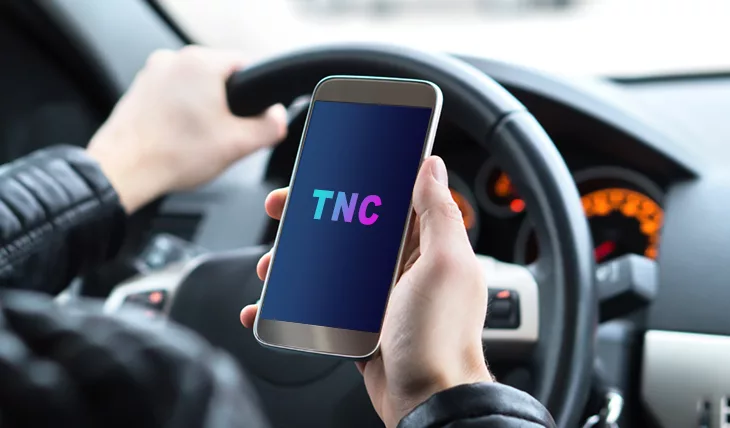What are TNCs, what does TNC stand for, and are TNCs the right option?
Definition of a TNC:
A Transportation Network Company, also known as a “TNC”, is a “ride hailing” or “ridesharing” organization that uses a mobile app, enabling people to secure individual and carpooling rides from drivers who use their own vehicles. GPS capability in smartphones identifies the pick-up location and keeps the customer informed in real- time when the car will arrive and it also provides a photo of the driver for identification purposes.
For those in the transportation business, TNCs may be nothing new, however their role in the ever-evolving transportation landscape is becoming more and more prominent. In 2013, the California Public Utilities Commission created the transportation network company category to deal with ridesharing services. In 2020, California voted ‘NO’ to requiring TNC drivers to be licensed, trained, and to operate like taxi drivers. Today, the ever-expanding reach of TNC organizations continues to unfold.
TNCs and NEMT
TNCs are emerging as providers in the Non Emergency Medical Transportation (NEMT) arena. But given that TNCs have very few restrictions before allowing their drivers to take the wheel, the verdict is out on whether this type of service is good or bad. Here are the facts:
- TNC drivers are independent contractors, not employees
- TNCs are not required to have the same licenses to operate in most cities as Taxi or Medical Transportation companies
- TNCs do not require the same level of auto and general liability insurance as Taxi or Medical Transportation companies
- All these factors and others make the app-based TNC business simple, cost-effective, and ultra-efficient too. But can the quality of TNCs ever measure up to that of a traditional NEMT Provider? Let’s look at the pros and cons:
The Pros
- The apps are user friendly and easily accessible
- There’s an increase in provider network availability and a decrease in operational costs
- There’s a measurable increase in attendance at health-related activities
- Some TNCs can set up a health care system with their platform in a matter of days
- Others have the capability to integrate with healthcare software platforms
And the Cons
- The service is relatively new and there’s not been enough time and research to determine its true impact on participants and the NEMT industry
- There is a lack of mobility options available
- Drivers don’t have first aid, CPR and blood borne pathogen training
- Drivers are not trained to work directly with older adults or people with disabilities
- There is a lack of credentialing requirements for TNC employees, including fingerprint background checks, SAM.gov (Federal System for Award Management) and OIG (Office of Inspector General) exclusion checks
The world of transportation has changed immensely in the last year. Now more than ever, the need for safe and efficient access to health care is paramount. But are TNC’s the right option? We hope this quick review helps you make the right choice for your organization.
